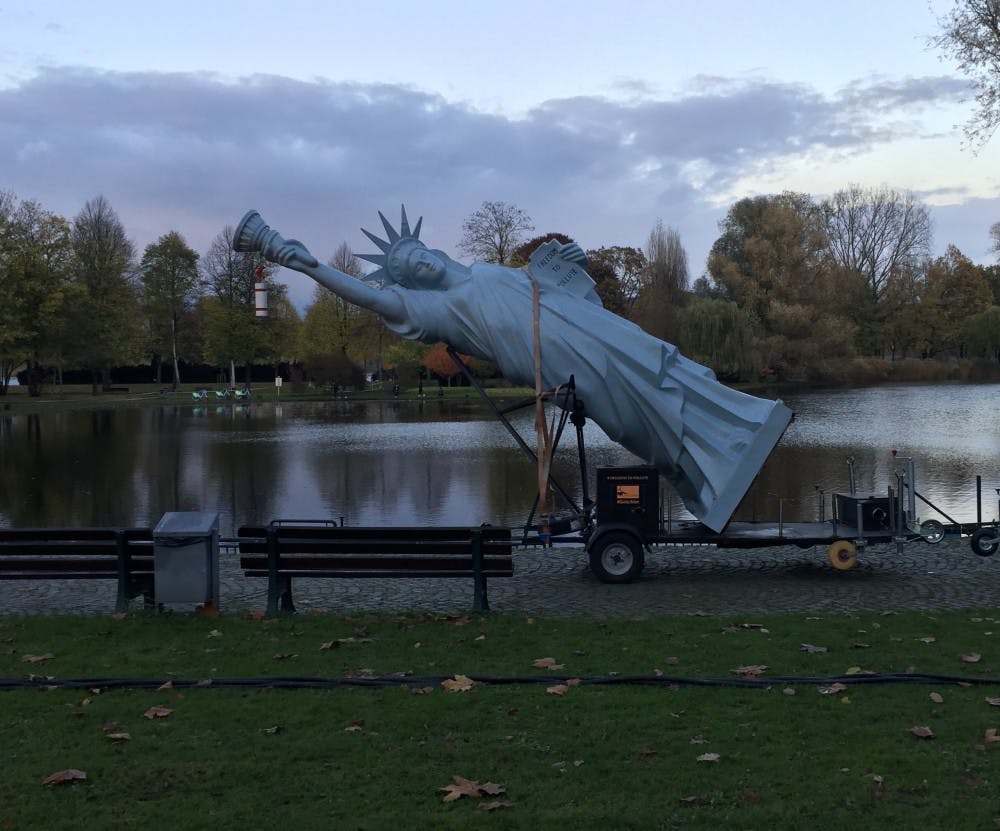Editors Note: This is a running series documenting four UNC student's experience at the COP 23 in Bonn, Germany. See the previous entry here.
By Andrea Orengo and Mark Ortiz
It has been a busy week at COP 23.
Hundreds of climate change related workshops and panel discussions have taken place throughout the conference halls and around the city of Bonn. Negotiations on the implementation of the Paris Agreement have extended into the wee hours of the night. Pop-up art installations and exhibits dot the landscape, and protests erupt with frequency. Things have moved at a dizzying pace, and it has been beyond challenging to keep up with all that is happening.
As we prepare to return to Chapel Hill and hand the baton to our week two delegation - who will be continuing the Tar Heels Talk Climate entries next week - we want to take this opportunity to slow down and offer a few reflections on our time here and what we’ve learned.
- There is no time to waste: As the second entry of this series mentioned, the urgency of climate action has taken centerstage at COP 23. Numerous discussions in the conference halls have focused on the need to bend the global emissions curve downward before 2020 to achieve the Paris aspirations. The movement to keep coal gas and oil in the ground is growing in response to this call, and a suite of financial institutions, pension funds and universities are taking notice and divesting their holdings from fossil fuels. Yet, much more remains to be done. Dedicated government action will be required to hasten the energy transition before the window of opportunity slams shut.
- The world forges ahead as the U.S. obstructs: On the second day of COP 23, Syria announced its intention to join the Paris Agreement. The U.S. federal government now stands alone in opposition to an otherwise universal pact. To add insult to injury, the U.S. is actively promoting coal at COP 23, a forum where the rest of the world is gathered to advance low-carbon development models and move away from planet-heating fuels. Though the remainder of the global community seems to be pushing forward with the Paris Agreement, there remains the risk that U.S. withdrawal could erode or undermine this consensus as time progresses.
- Our individuals actions do have an impact: Back home, it is very common to hear people say, “What I do doesn’t matter.” It’s this idea that when you recycle one bottle, it doesn’t matter in the grand scheme of the world. We argue against that logic. The small actions of billions of people got us into this mess, and it will take the small actions of billions more to fix it. So keep on recycling, and walking/ biking instead of driving, and calling your representatives when they do something you disagree with because it does make a difference.
- We are not saving the Earth. We are saving our right to live here: The Earth is over 4.5 billion years old. She will keep on spinning and support amazing life long after we are gone. Climate change is the greatest challenge of our time because it directly affects our ability to support ourselves on the planet. Let’s throw out this narrative that we are saving the planet and instead take a moment to reflect on how privileged we are to be here in the first place.
We hope you’ll stay tuned for more next week as our team reports live from Bonn.




